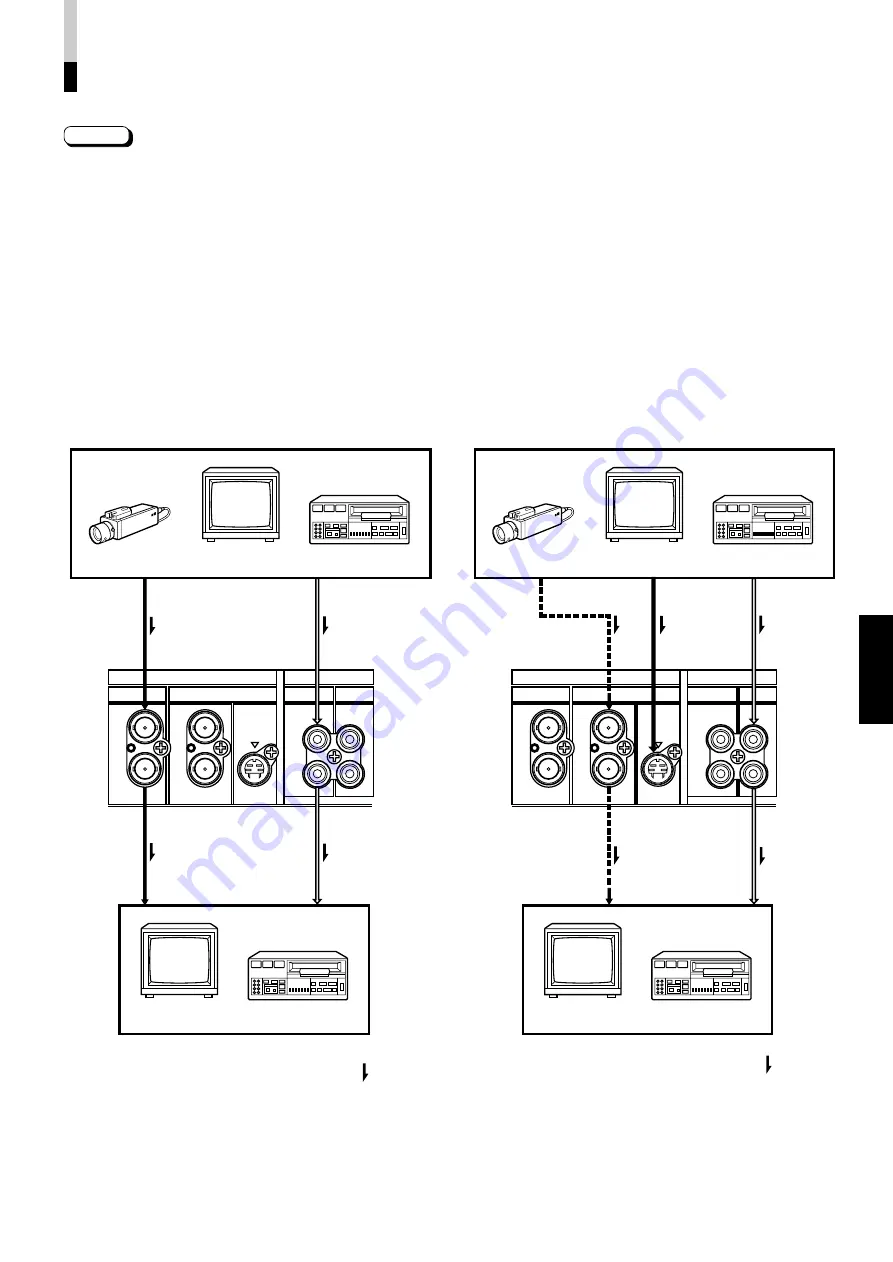
ENGLISH
11
BASIC CONNECTION EXAMPLE
Notes:
●
Before connecting your system, make sure that all units are turned off.
●
The illustration below shows some examples of different connections. Terminal connections may differ depending on the
component connected. Be sure to refer to the instructions provided with the unit(s) you are connecting.
●
Each pair of input (IN) and output (OUT) terminals are bridge-connected. However, the Y/C input terminal (Y/C IN) has no output
terminal (OUT) corresponding to it.
●
If you’re not connecting any equipment to a bridged output (OUT) terminal, be sure not to connect any other cables to the
bridged output (OUT) terminal as this will cause the terminating resistance switch to open (auto terminate function).
●
When making a bridge connection, connect the input (IN) and output (OUT) terminals on the monitor to separate video
components.
(For example, if both terminals are connected to the same VCR, resonance may occur except during playback. This is caused
by the same video signal “looping” between the VCRs, and is not a malfunction.)
●
Select the video input (Input A or Input B) with the input select button on the front panel.
7
VIDEO A Connection Example
(Select Input A button)
Video Monitor
VCR
: Signal Flow
(Audio signal cable)
Audio
Video
(Video signal cable)
(Audio signal cable)
Audio
Video
(Video signal cable)
Video Monitor
Video Camera
IN
OUT
A
VIDEO
AUDIO
IN
Y/C IN
OUT
IN
OUT
B
A
B
VCR
: Signal Flow
Y/C (S-video)
(Y/C (S-video) signal cable)
Video Monitor
VCR
(Audio signal cable)
Audio
Video
(Video signal cable)
(Audio signal cable)
Audio
Video
(Video signal cable)
Video Monitor
Video Camera
VCR
IN
OUT
A
VIDEO
AUDIO
IN
Y/C IN
OUT
IN
OUT
B
A
B
7
VIDEO B Connection Example
(Select Input B button)


































